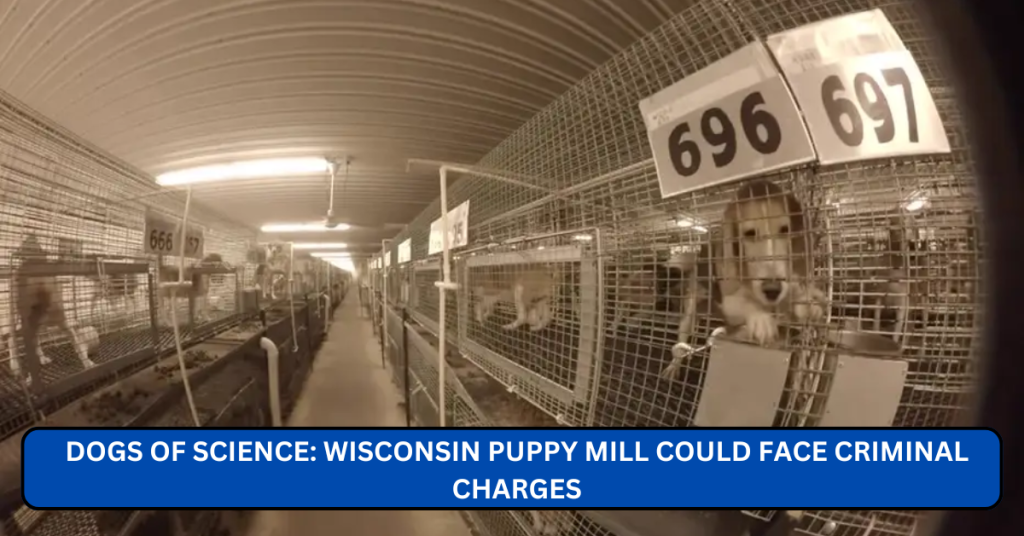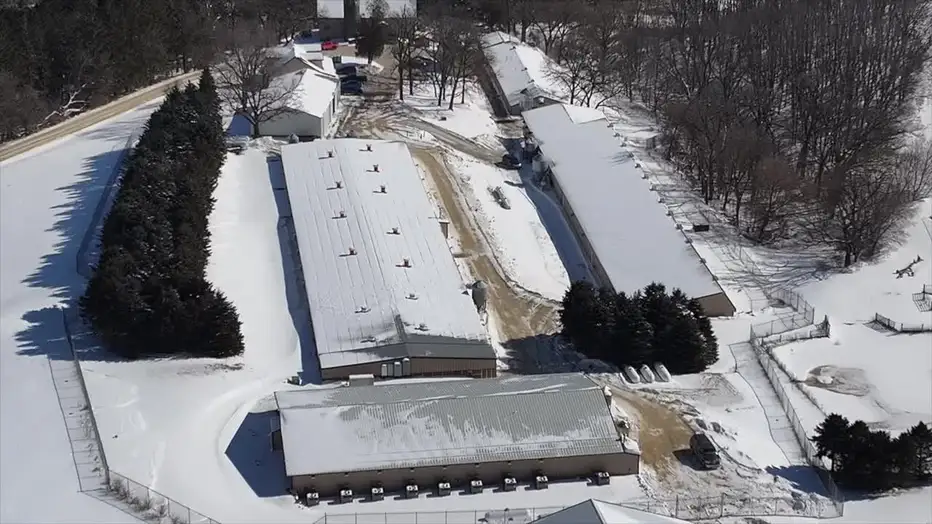
A Wisconsin-based breeding facility supplying beagle puppies for scientific research is under investigation for alleged animal mistreatment, potentially leading to criminal charges. The case against Ridglan Farms, located west of Madison, has sparked controversy, reigniting the debate over the ethical treatment of laboratory animals.
Investigation and Possible Charges
In February 2025, a Dane County judge appointed La Crosse County prosecutor Tim Gruenke to assess possible criminal charges against Ridglan Farms. The decision came after former employees testified about disturbing conditions within the facility, including claims of painful surgeries performed on dogs without anesthesia. These allegations were specifically directed at Dr. Richard Van Domelen, the lead veterinarian at the farm. The Wisconsin Veterinary Examining Board has since restricted surgical procedures at the facility and is considering suspending Van Domelen’s veterinary license.
Gruenke is currently reviewing relevant documents and witness testimonies, but a timeline for potential charges has not been announced.
A Legacy of Breeding for Research
Established in 1966, Ridglan Farms is one of the largest U.S. breeders supplying beagle puppies for laboratory research. It currently houses over 3,200 dogs. Beagles are commonly used in medical and pharmaceutical testing due to their gentle nature and small size, making them easier to handle in lab environments.
According to the United States Department of Agriculture (USDA) Animal Welfare Act breeding facilities supplying research institutions must meet specific care and ethical treatment standards. However, Ridglan Farms has faced increasing scrutiny from animal rights groups and former employees alleging violations of these standards.
Whistleblowers and Public Backlash

The investigation into Ridglan Farms gained traction following efforts by Direct Action Everywhere (DxE), an animal rights group that documented conditions inside the facility through an “open rescue” in 2017. Activists removed three beagles and published footage allegedly depicting the dogs in distress. In 2021, several activists were charged with burglary and theft for their actions, but these charges were dropped in 2024 after mounting public backlash.
Following these developments, animal rights groups petitioned for a special prosecutor to investigate potential mistreatment at Ridglan Farms. The push led to Gruenke’s appointment and the renewed examination of conditions at the facility.
Regulatory Response and Industry Debate
The Wisconsin Veterinary Examining Board has since implemented temporary restrictions on Ridglan Farms, mandating that all surgeries be conducted by licensed veterinarians using proper anesthesia. The board is also considering disciplinary action against Dr. Van Domelen, including the potential revocation of his veterinary license.
Wisconsin is home to numerous research facilities using animals in experiments. Over 3,600 dogs are currently housed in research labs across the state, including Ridglan Farms and Labcorp Drug Development, a private pharmaceutical research company. Proponents of medical research using animals argue that breakthroughs, including the development of insulin and life-saving drugs, have historically depended on such studies.
However, the case against Ridglan Farms has intensified calls for alternative research methods. Animal rights activists and lawmakers continue to push for non-animal testing techniques, including computer modeling and synthetic cell cultures, to reduce reliance on live subjects.
Legal and Ethical Implications
If charges are filed against Ridglan Farms, it could set a legal precedent for stricter enforcement of animal welfare regulations in research facilities. Violations of the Animal Welfare Act can lead to fines, facility shutdowns, and criminal penalties. Federal agencies such as the USDA and Food and Drug Administration (FDA) oversee compliance, but critics argue that enforcement mechanisms remain weak.
The ongoing investigation raises ethical questions about how laboratory animals should be treated, particularly in an era where advancements in alternative testing are growing. Many states have already passed legislation restricting or banning animal testing, increasing pressure on institutions to adopt humane research methods.
What’s Next?
As prosecutor Tim Gruenke reviews the case, the public awaits a decision that could shape the future of scientific animal breeding in Wisconsin and beyond. Meanwhile, animal rights organizations continue advocating for policy changes to ensure the humane treatment of research animals.
For those interested in following the case or advocating for stronger protections, visit the Wisconsin Department of Agriculture, Trade and Consumer Protection (DATCP) (Wisconsin Animal Welfare) or the USDA Animal and Plant Health Inspection Service (APHIS) (USDA APHIS) for further information on regulations and enforcement.
Conclusion
The case against Ridglan Farms underscores the growing tension between scientific research and animal welfare advocacy. As the investigation unfolds, it remains to be seen whether legal actions will be taken or whether regulatory reforms will emerge from the controversy. One thing is certain: the ethical treatment of animals in research continues to be a hotly debated issue with lasting implications for science, law, and public policy.



